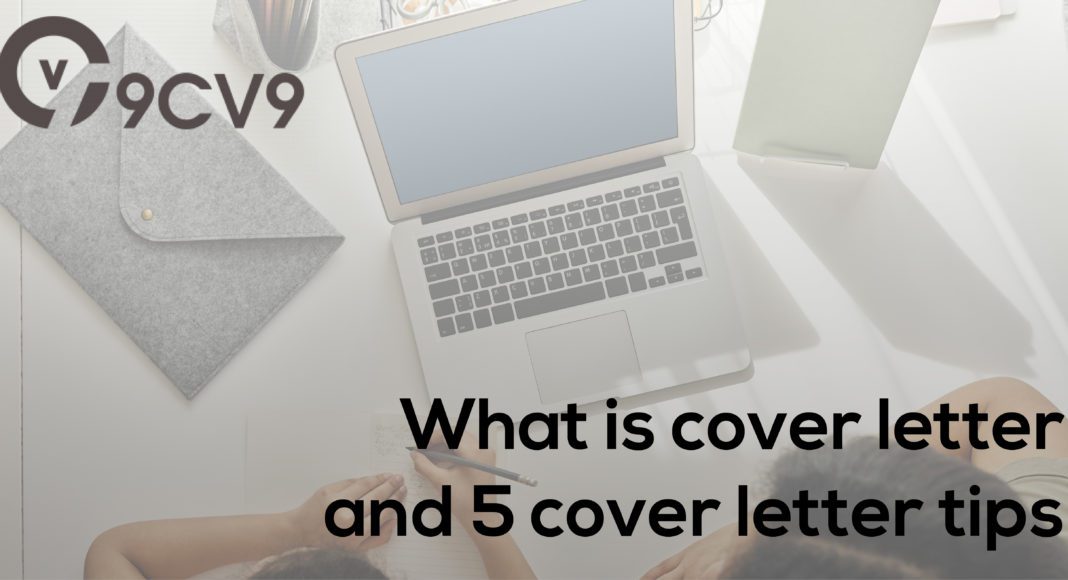In the previous blog, we mentioned that creating a great CV really sells you for your dream jobs. While this is true, most job dashboards will ask you to also bring a Cover Letter. Believe it or not, it is as important as the CV and/or resume. How is it more important? Why do we need it in addition to our CV and/or Resume? Let us discuss What is Cover Letter and 5 Cover Letter writing tips
WHAT IS COVER LETTER?
According to Zety, A cover letter is a document attached to your job application, showing why you’re the best candidate. It introduces you in a more personal way and compliments the info on your resume or curriculum vitae. It also expands on the skills and achievements and highlighting a selection of your greatest career successes.
Also called an application letter, it is a document sent with your resume to provide additional information about your skills and experience to an employer. The letter of application is intended to provide detailed information on why you are are a qualified candidate for the job. (The Balance Career)
Lastly, according to Investopedia, A cover letter is a written document commonly submitted with a job application outlining the applicant’s credentials and interest in the open position. A well- or poorly-written letter can impact whether the applicant is called for an interview.
From the explanation above, we can conclude that a cover letter is a written document attached to the job application that outlines the applicant’s credentials and interest.
WHY IS IT IMPORTANT?
As we mentioned above, a cover letter is as important as the CV and/or the resume itself. It shows why you are the right person for the job. It shows your motivation for joining the team. By putting your best foot forward, you can increase your chances of being interviewed. Your application letter should let the employer know what position you are applying for, what makes you a strong candidate, why they should select you for an interview, and how you will follow up.
In essence, it’s a sales pitch that describes why the applicant is the best person for the position. It is a full-blown marketing campaign. Yes, it still mentions facts and figures, but it puts them out in the form of a story. 49% of recruiters see a cover letter as a factor that’ll make them pay more attention to your application. That’s the second-best way to boost your chances after a properly targeted resume.
Linda Spencer, associate director and coordinator of career advising at Harvard Extension School, says that a solid cover letter answers two key questions:
- Why are you the right fit for the job?
- How will you add value to the organization?
WHAT COUNTS AS GOOD?
“It takes the average employer about seven seconds to review these documents,” says Linda Spencer. “They’re not reading, they’re skimming. So you need to make it clear right off the bat how you can add value.”
1. Highlighting Your skills Skills.
We will take learn from Harvard itself. They said that a good way to create a response-producing cover letter is to highlight your skills or experiences that are most applicable to the job or industry and to tailor it to the specific organization you are applying to.
2. Complements the Resume
A good cover letter complements a resume by expanding on items relevant to the job. Career experts advise job seekers to spend time customizing each one for the particular position, rather than using a generic missive. Although this requires extra effort, it can be very helpful in allowing an applicant to stand out above the competition.
3. Not Just REPEATING the Resume
A great cover letter should not just repeat your resume in a shorter form, but should tell the employer what it is about the job that is attractive to you and why you want to work for that employer. You will also need to include the unique skills and the qualities you bring to that job and the company.
5 COVER LETTER TIPS
Again and again, we want to make this clear: Cover Letter is as important the CV and/or Resume. It is important for you know the tips and trick on how to do it, the right way. Here are some tips that we can give:
1. Start With Research
Same as CV, getting to know what is your potential position jobs is key to writing a great Cover letter. Employers will most likely notice, potentially impressed if you know what skills and knowledge that they are looking for.
Be sure to also pay attention to any application instructions written in the description. This step reveals what materials they need to review in order for them to consider your application. Even with a referral, you’ll still need to follow the steps listed in the job description.
2. Address the letter to a specific person
“To whom it may concern” is one of the fastest ways to get your application deleted. Thus it is wise to always try to address your letter to a specific person — usually the hiring manager or department head. Include their name, title, company, and address at the very top below the date.
If you don’t know who to address, LinkedIn is a great place to start. Simply enter the company name and some keywords into the search bar (e.g., “Google, hiring manager, sales”) and a variety of related profiles will appear.
3. Know what’s important
We’re not writing a 1,000-word essay that summarizes your resume. The cover letter is your chance to explain why you’re genuinely interested in the company and its mission. Hence, it is really important to know what’s important and what’s not to include.
As with all cover letters, a job application letter is divided into sections:
- The heading, which includes your name and contact information.
- A greeting addressed to a specific person, if possible.
- The introduction, which should include why the applicant in writing.
- The body, which discusses your relevant qualifications.
- The close, which thanks to the reader and provides contact information and follow-up details.
- Your signature to end the letter.
4. Consistency is a make or break.
Same as CV, visual consistency makes a big difference. Keep your letter to just one page and use the same font (and size) as you did for your resume. If you’re converting the letter to a PDF, make sure the formatting is translated properly. Above all else, it should look professional and easy to navigate. Recruiters would love to review a CV that is easy to navigate and looks professional
5. Monitor your social media.
Today, more employers check social media accounts to see what an applicant has posted publicly. This can be an indication for employers to see if you’re the right fit for their company. Be mindful of what you post on your social media accounts, and post links to your social media accounts in your portfolio if you’re applying to a job in that field.































![Writing A Good CV [6 Tips To Improve Your CV] 6 Tips To Improve Your CV](https://blog.9cv9.com/wp-content/uploads/2020/06/2020-06-02-2-100x70.png)


